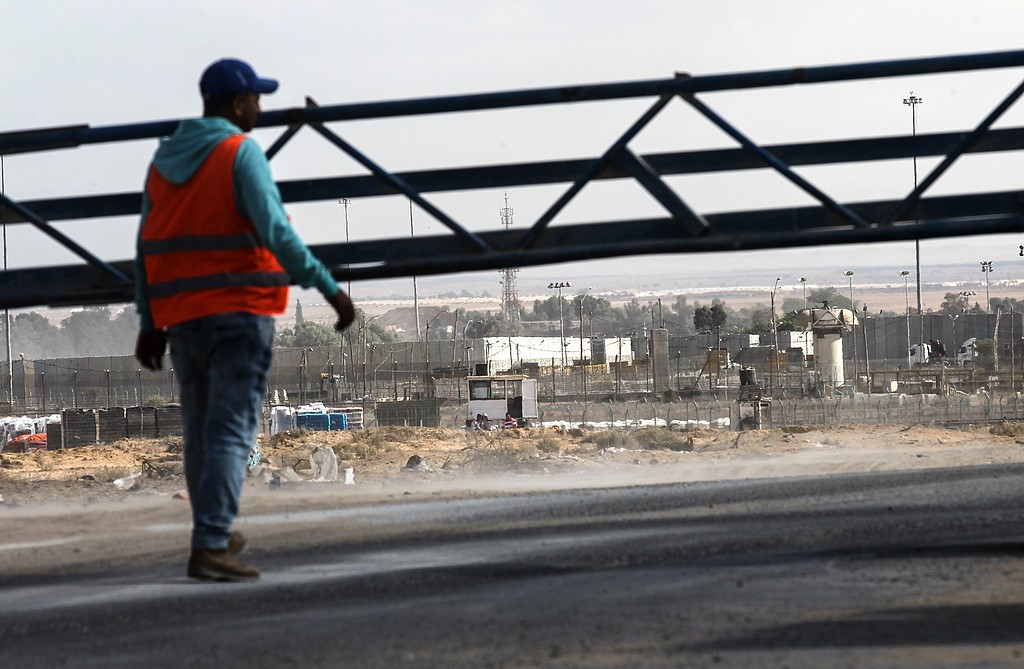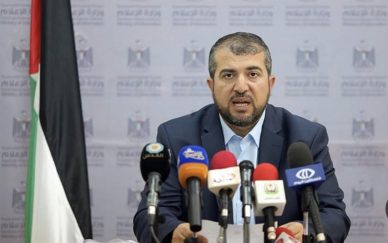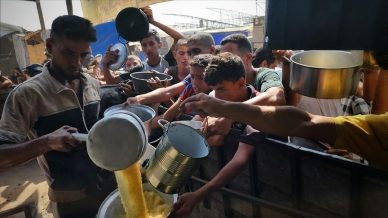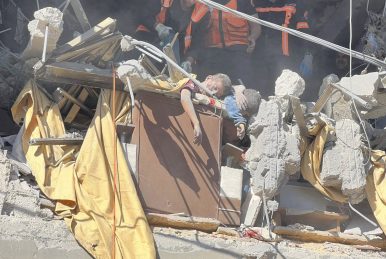GAZA, (PIC)
The naked eye cannot miss the dire humanitarian situation faced by the Gaza Strip and its surviving residents, if that term is accurate, from an Israeli genocide that has persisted for more than 15 months and continues through wars with various names. Starvation, thirst, being submerged in darkness, waste, and sewage, as well as the denial of treatment and medical supplies, are all additional wars that accompany daily killings despite the ceasefire that has been in effect since January 19.
The Israeli failure to adhere to the “humanitarian protocol” of the ceasefire agreement has exacerbated the suffering, sustaining and intensifying it. The Israeli closure of the crossings at the end of the timeframe for the first phase of the agreement is an attempt to blackmail the resistance and its negotiating delegation by applying more pressure on the civilian base supporting the resistance.
Government officials in the Gaza Strip warned, in separate interviews with the Palestinian Information Center, of the worsening humanitarian and environmental conditions that have reached what they described as “catastrophic and devastating” levels. They called for pressure on Israel to fulfill its obligations and cease using humanitarian needs as a bargaining chip.
A direct threat to patients’ lives
Spokesman for the Ministry of Health, Khalil Al-Daqran, said that the continued closure of the crossings poses a direct threat to the lives of thousands of patients and injured individuals in the Gaza Strip due to the Israeli prevention of the entry of essential medicines and medical supplies. In a special interview with the Palestinian Information Center, he pointed out that Israel has only allowed 10% of essential medical needs to enter, emphasizing that the “drip-feed” policy of aid entry kills patients daily.
Al-Daqran explained that the healthcare system in Gaza suffers from severe shortages of medicines, devices, and medical supplies, including ventilators and oxygen, hindering hospitals’ ability to provide life-saving services. He warned that the continued closure of crossings and the prevention of medical devices, supplies, and medicines will lead to an increase in fatalities among patients, especially those suffering from chronic illnesses and serious injuries.
A real catastrophe
For his part, the Mayor of Gaza, Yahya Al-Saraj, warned of the repercussions of closing the crossings on the environmental situation in the Gaza Strip, revealing the accumulation of hundreds of thousands of tons of waste in random landfills within residential areas. In a special interview with the Palestinian Information Center, he noted that the main landfills have become inoperable due to access restrictions, as they are located in eastern areas still controlled by the Israeli occupation army, which prevents access.
He explained that this situation forced the municipality to create random landfills close to population centers, posing a significant risk to public health. Al-Saraj indicated that these landfills have become sources of foul odors, insects, and diseases, especially with the approach of summer and rising temperatures, warning that the situation will worsen if a prompt solution for waste removal to designated landfills in the east of the sector is not found.
In a related context, Al-Saraj confirmed that wastewater treatment plants and main sewage lines have been completely destroyed, leading to the flow of sewage into the streets and camps. He stated that untreated sewage is reaching the sea, causing significant environmental pollution, asserting that Gaza is experiencing an unprecedented humanitarian and environmental catastrophe. He stressed the need for the world to act now to save Gaza, which is facing a real disaster that will affect all aspects of life, from humans to animals and even plants.
A death sentence
Ismail Al-Thawabteh, Director-General of the Government Media Office, said that the closure of the crossings and the prevention of humanitarian and medical aid constitutes a blatant violation of international and humanitarian law, endangering the lives of more than two million citizens in the sector. In a special interview with the Palestinian Information Center, Al-Thawabteh viewed the closure of the crossings not merely as a political decision but as a death sentence for thousands of patients and injured individuals who rely on the medical aid and medicines being denied entry to the enclave.
He noted that the repercussions of closing the crossings on the humanitarian situation in the Gaza Strip are extremely serious, affirming that the continuation of this closure threatens an unprecedented humanitarian disaster. Regarding the impact of the closure on the daily lives of residents, Al-Thawabteh confirmed that the enclave suffers from severe shortages of essential food supplies and fuel, disrupting the operation of hospitals, power plants, and water facilities.
He emphasized that the closure of the crossings threatens not only public health but also affects all aspects of daily life, as residents suffer from shortages of food, water, and electricity. Al-Thawabteh warned that the continued closure of the crossings will exacerbate the humanitarian crisis in the enclave, calling on the international community and humanitarian organizations to urgently intervene to open the crossings and allow the immediate entry of humanitarian and medical aid.
He urged the international community to shoulder its responsibility and pressure Israel to open the crossings, to save the lives of thousands of citizens suffering from shortages of medicines, food, and water. Al-Thawabteh confirmed that the government in Gaza is working on all levels to address the crises affecting the Gaza Strip, stressing that it needs urgent international support to rescue the enclave from the humanitarian catastrophe it is experiencing. He stated that Gaza is facing one of the most difficult crises in its history and needs a concerted international effort to save the people from this suffering.














